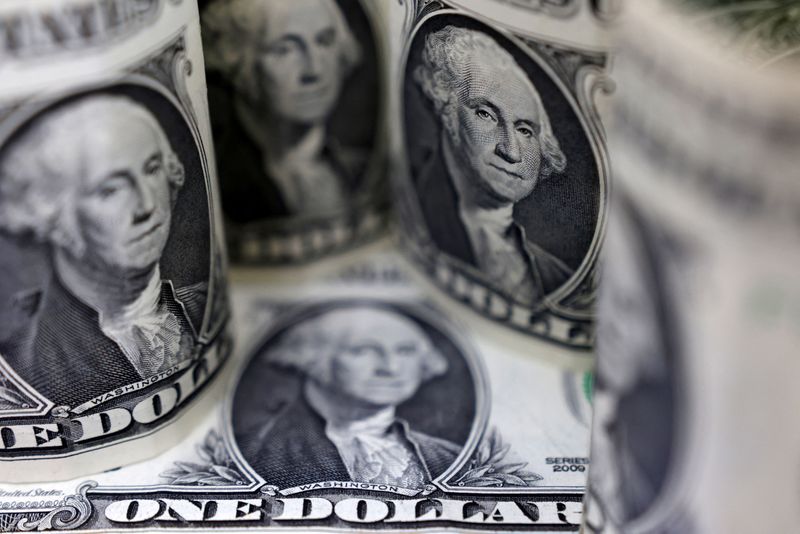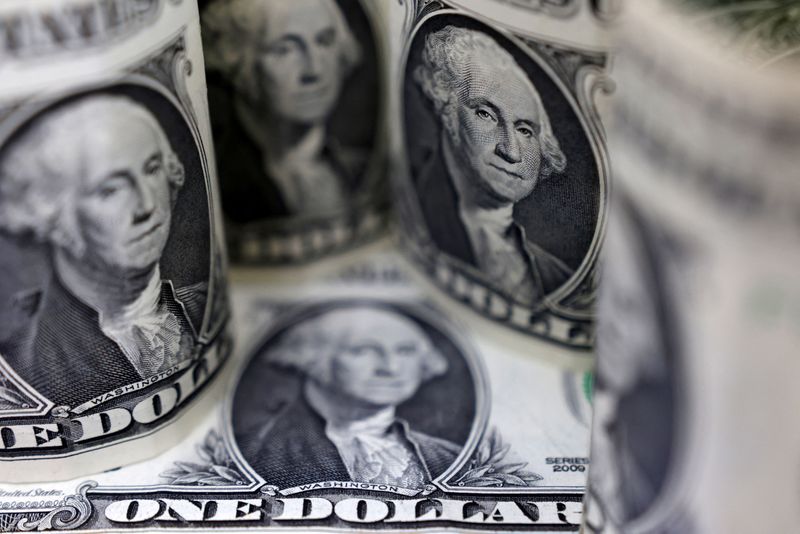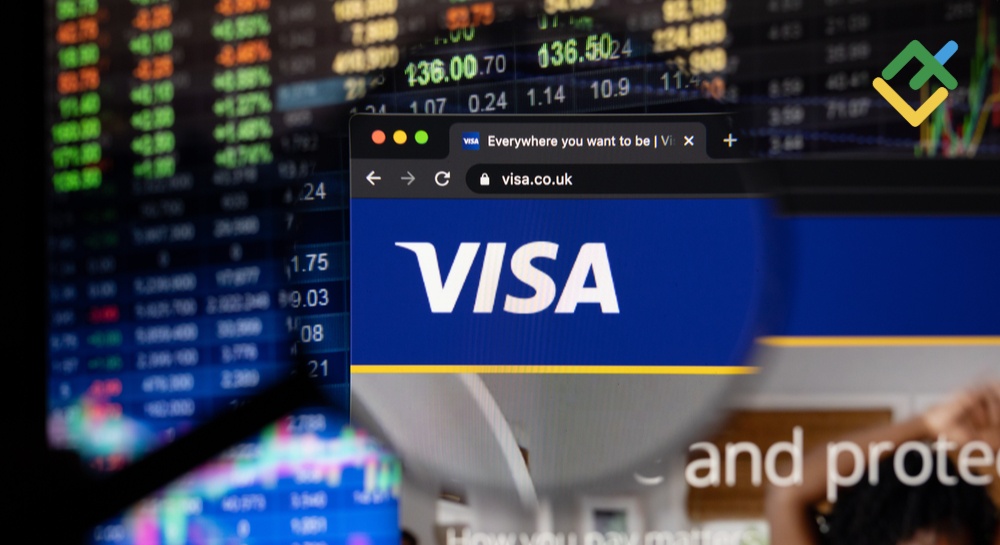
By Chibuike Oguh and Greta Rosen Fondahn
NEW YORK/GDANSK (Reuters) -The U.S. dollar advanced against major currencies on Monday, hovering near a three-week high, as markets await the Federal Reserve and other key central bank meetings this week for clues on the likely path of interest rates in 2025.
Markets are confident of a quarter-point Fed rate reduction at the end of its policy meeting on Wednesday, with chances of such a cut at almost 97%, according to CME’s FedWatch tool. The yield on benchmark U.S. 10-year notes fell 1.2 basis points to 4.387%.
“I don’t think the debate is whether the Fed cuts or not; it’s always about forward outlook,” Eugene Epstein, head of structuring for North America at Moneycorp in New Jersey, said.
“The dollar has gained a quite a bit of strength since the end of September. And that makes sense since all our economic indicators are going contrary to the attempted Fed narrative over the last couple of months, in which they cut rates saying inflation is going down towards their desired direction and the job market is getting weaker.”
The dollar strengthened 0.7% to 0.89320 against the Swiss franc, hovering near its highest level since July. Against the Japanese yen , the dollar strengthened 0.43% to 154.28, after rising as high as 154.480 for the first time since Nov. 26.
The yen has struggled to rebound against the greenback following its largest weekly slide since September after Reuters and other news outlets reported the Bank of Japan was likely to keep interest rates steady at the end of its policy meeting on Thursday.
The euro rallied after German chancellor Olaf Scholz lost a parliamentary confidence vote, paving the way for snap elections in February. The euro rebounded after early session losses but pared those gains and was down 0.06% at $1.0496.
The decline in euro zone business activity eased this month, a survey showed, while European Central Bank President Christine Lagarde said on Monday the ECB will cut interest rates further if inflation continues to ease towards its 2% target.
The U.S. dollar index – which tracks the currency against six others – was up 0.08% at 106.95, after rising as high as 107.16 on the session. The index had hit 107.18 on Friday, its highest since Nov. 26.
Sterling was up 0.70% to $1.26970, after it lost ground on Friday to its lowest point since Nov. 27, when data showed a surprise economic contraction in the British economy.
A survey of business activity pointed to a rise in prices in Britain on Monday. The Bank of England is due to announce a policy decision just hours after the BOJ.
“When you look at how the dollar has performed, not only do you have a Fed that’s kind of in a corner, but you also have a lot of major central banks going the other way with their own individual stories: the Bank of Canada just cut, the Swiss National Bank cut, more-than-expected ECB cut. Ultimately, there isn’t that much that can reverse the maintenance of the current strength of the dollar,” Epstein added.

Bitcoin hit a record high above $106,000 after President-elect Donald Trump suggested he plans to create a U.S. bitcoin strategic reserve similar to its strategic oil reserve, stoking the enthusiasm of crypto bulls.
Trump’s comments came in an interview with CNBC late last week and echoed other statements made during his successful presidential campaign, which was seen as positive for the crypto industry. Bitcoin surged to as high as 106,858 on Monday. It was last up 5.23% to $106,645.00.
This post is originally published on INVESTING.



